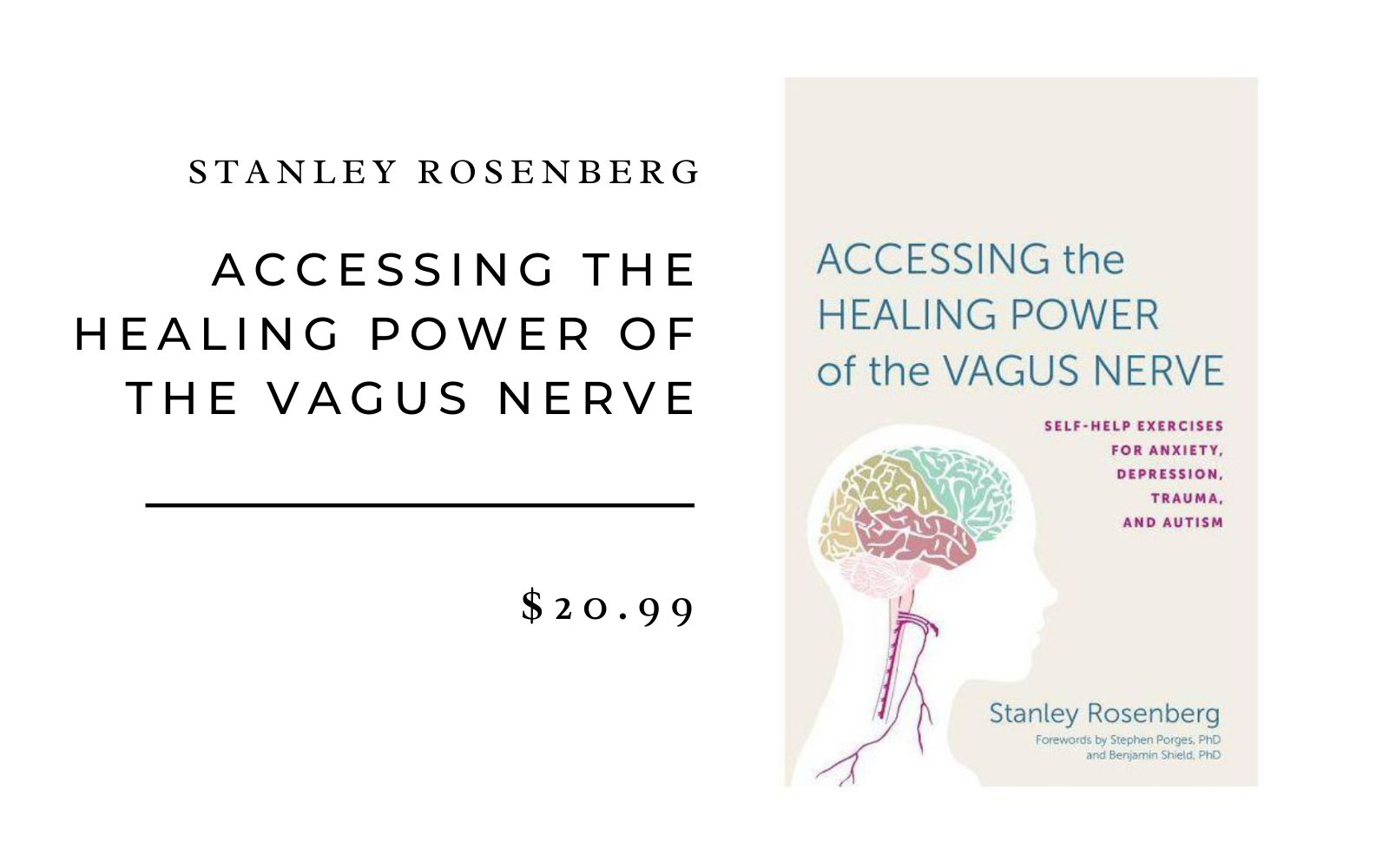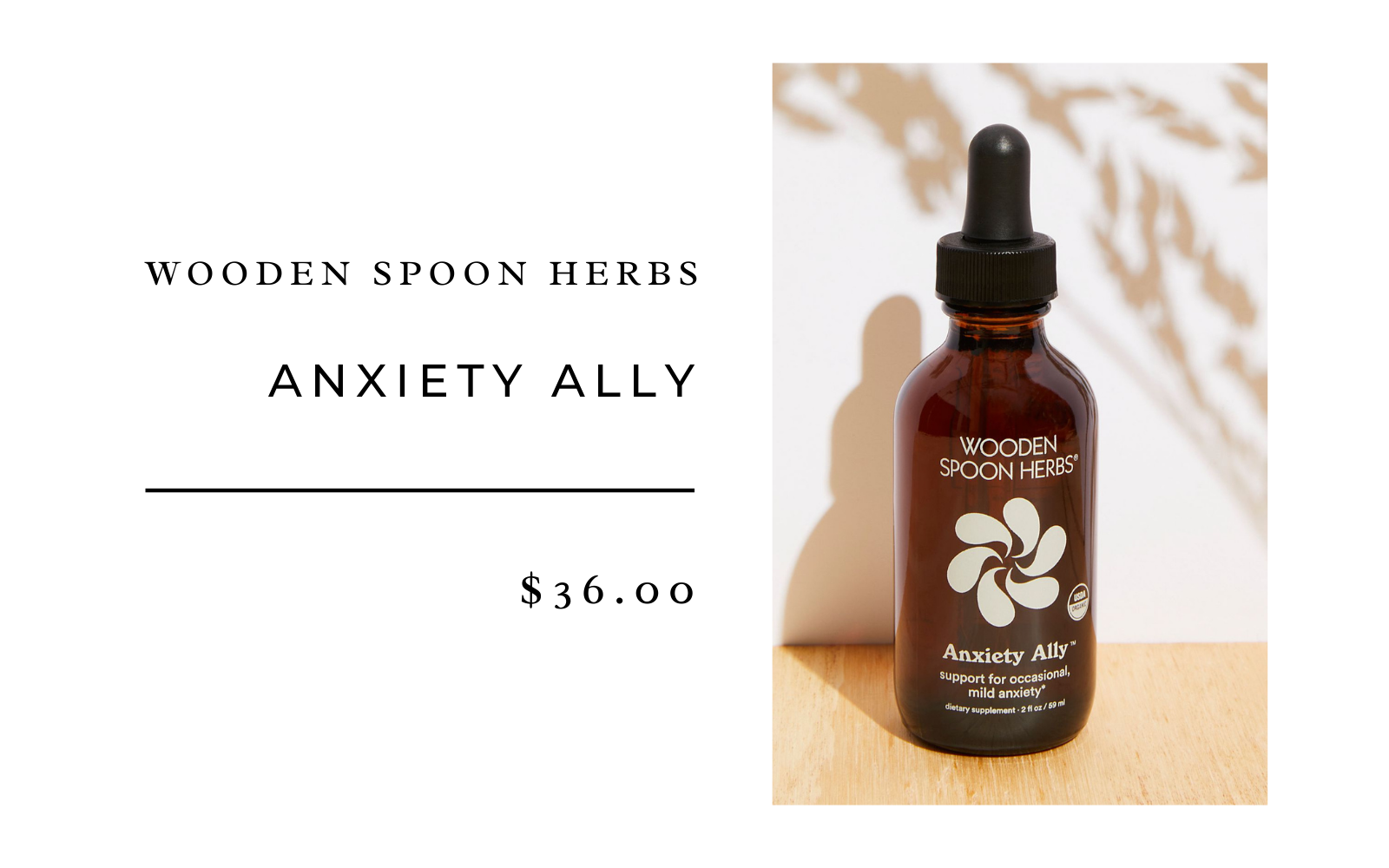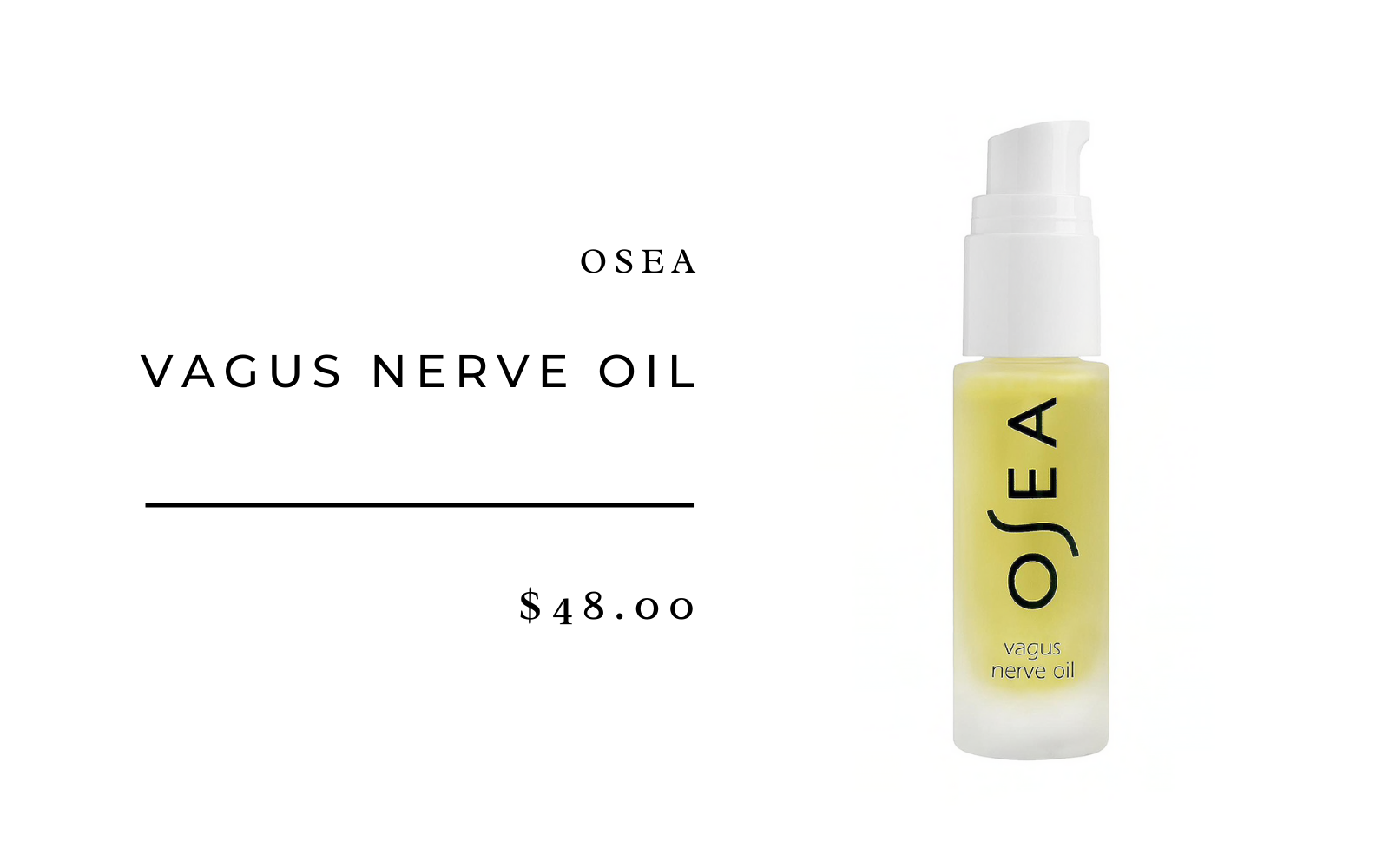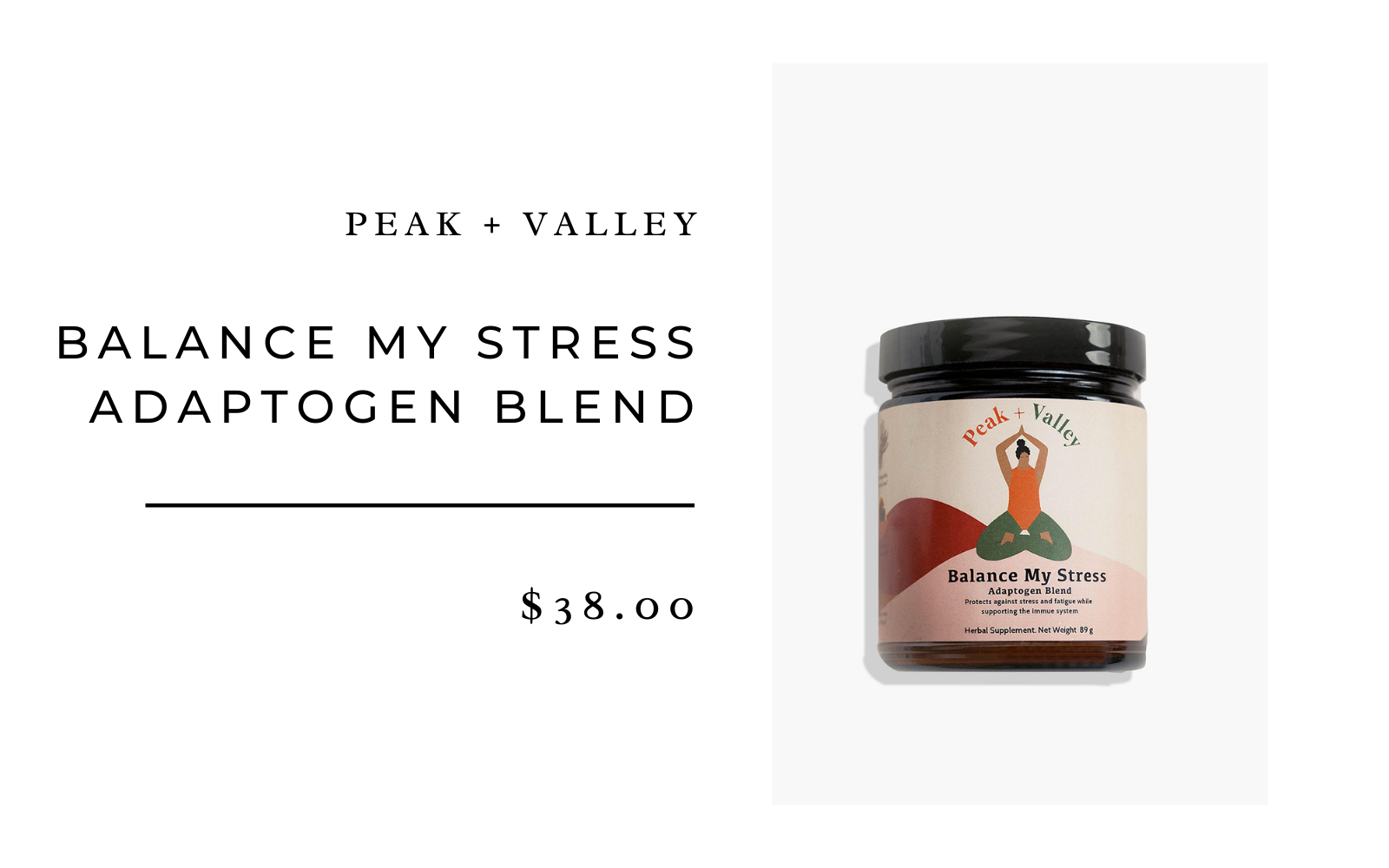In our chronically fast-paced society, it’s almost impossible not to carry around some level of stress. Even if you do the breathing exercises, meditative tea-sipping, and morning journaling and flow through your day like an organized goddess, stress can tiptoe its way in. If you’re looking for ways to level up, not only your stress management, but your stress resistance, the vagus nerve is here to help. But what is the vagus nerve exactly?
Vagus means “wandering” in Latin, and like his name suggests the nerve meanders around your chest and abdomen, connecting to most of your core organs. But why is it important and what does that have to do with stress?
We chatted with vagus nervous system expert, Dr. Stephanie Canestraro of the Vagus Clinic, to dive into the ins and out of the largest component of the parasympathetic nervous system and to understand how it affects our health. A frustrating medical history spurred her to innovate in the field and help others, which in turn, led her into functional medicine. After tapping into the significance of the vagus nerve, Dr. Canestraro created her clinic to focus on gut and vagal health( the two foundations that helped her retain her own wellness.) With a background in functional medicine, chiropractic, and acupuncture, Dr. Canestraro now utilizes her expertise to treat her clients.
Scroll on as Dr. Canestraro walks us through everything from what the vagus nerve is to what it does and how boosting your vagal tone can effectively manage stress.

What is the Vagus Nerve?
The vagus nerve is your tenth cranial nerve (CNX). It is known as the “wandering nerve” because it is the longest parasympathetic nerve in the body.
It takes the lead in almost every autonomic function in the body. It stimulates the “rest and digest” side of our nervous system, as opposed to the sympathetic “fight or flight” side.
The vagus nerve has two branches: the ventral nerve and the dorsal nerve, which get their names because of where they originate from the brainstem. The anterior vagal branch innervates the organs above the diaphragm, the heart and lungs, the back of the soft palate, some skin over your ear, and more. The dorsal branch mainly innervates the organs below the diaphragm, including the kidneys, liver, gallbladder, and gut, all the way down to the transverse colon.

The role of the vagus nerve and the functions it regulates:
The vagus nerve connects the brainstem to the body. It allows the brain to monitor and receive information about several of the body’s different functions.
It has a number of different functions, including:
- Supplies sensory information for the throat, ears, heart, lungs, and most of the digestive tract.
- Provides taste sensation behind the tongue.
- Provides movement functions and reflexes for the muscles in the neck responsible for swallowing, sneezing, and speech.
- It’s parasympathetic functions include responsiblility for the digestive tract, respiration, and heart rate.

Over time, what effects does stress and an unregulated nervous system have on our body?
Stress and an unregulated nervous system lower your immune system, which is responsible to defend your body against disease and infection. Chronic stimulation of your immune system because of stress, causes that system to become suppressed overall, and thus becomes less effective at warding off diseases and infections.
In some instances, stress causes existing conditions to worsen, and in other cases, stress and an unregulated nervous system can be a major factor in creating vulnerability to developing new conditions in the first place.
How does vagal health affect your overall wellness?
The vagus nerve acts like an information highway straight down to your brain, and when the vagus nerve is not firing well, it is called “low vagal tone”.
Low vagal tone is associated with many symptoms and issues, like IBS, rheumatoid arthritis, anxiety, panic attacks, and poor heart rate variability. Because it influences your breathing, digestive function, and heart rate, it can have a huge impact on your mental health too.
What you really need to pay special attention to is the “tone” of your vagus nerve. Vagal tone is an internal biological process that represents the activity of the vagus nerve. Increasing your vagal tone activates the parasympathetic nervous system, and having a higher vagal tone means that your body can relax faster after stress.
The more your increase your vagal tone, the more your physical and mental health will improve.

Methods to activate and tone the vagus nerve:
1. Cold exposure — Try finishing your morning shower with at least 30 seconds of cold water. Let the cold water from your shower run over a sensitive area of your body, like the back of your neck. Take deep diaphragmic breaths as you let the water wash over you. Gradually increase your exposure time. If this is too much, start by splashing cold water over your face.
2. Deep breathing — Slowly inhale as much as you can through your nose. When you feel your lungs are full, inhale a tiny bit more. Hold your breath for five seconds, then exhale slowly for seven seconds through pursed lips like you are whistling. Do this at least 10 times in a row. You want to breathe in using your diagram. When you do this, your stomach should expand forwards while your rib cage expands outwards.
3. Humming and gargling — Singing, humming, and gargling are all great ways to stimulate a part of the vagus nerve because it is connected to your vocal cords and the muscles in the back of your throat. Throughout the day, hum along to your favorite songs. In the morning and evening, gargle with water. Take a gulp of water in your mouth, tilt your head back and gargle for 30 seconds.
4. Gag reflex — The vagus nerve is responsible for your gag reflex. If you do not have a gag reflex this is a sign of low vagal tone. Use a tongue depressor or the end of your toothbrush to stimulate the back of your throat and elicit a gag reflex. You can do this daily after brushing your teeth.
5. Acupuncture — The vagus nerve innervates your tragus, auricle, and skin over the inner canal of your ear. You can also tap a toothpick over this area, and this can stimulate your vagus nerve.
6. Tickling the face and a neck/scalp massage — This affects the nerves that come off the same area of the brain that the vagus nerve innervates. These areas when stimulated, cause relaxation and increases vagal tone!
There are other exercises that you can do to improve your vagal tone, and you can find more information on The Vagus Clinic’s website.

Incorporate boosting your vagal tone into your every day:
The exercises mentioned above can be incorporated into your daily schedule, so in times of stress, your vagal tone will be stronger, and you will find that you can handle stress better and relax faster. Utilizing deep breathing and meditation when in stressful times will promote feelings of goodwill toward yourself, and will help reduce the sympathetic “fight or flight” activity that you may be in.
Products we love for reducing stress: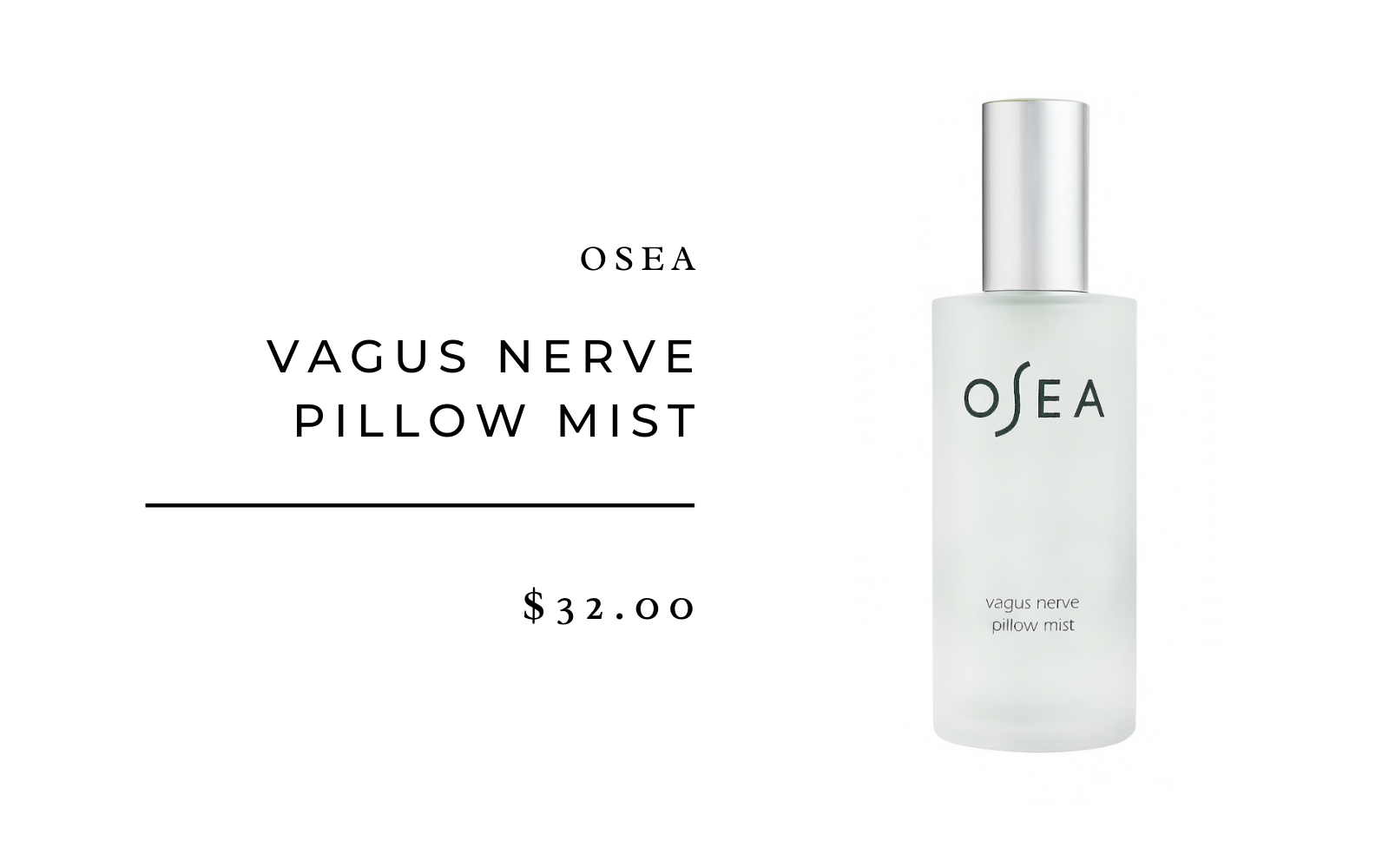
Sleep is essential for supporting our body’s ability to recover and repair and a quick spritz before bed soothes and boosts balance and well-being. No need to limit this to just the bedroom — this Vagus Nerve Mist makes for a great all-over room spray too for ultra zen vibes.
Accessing the Healing Power of the Vagus Nerve – by Stanley Rosenberg
If you’re interested in diving deeper into the amazing abilities of the vagus nerve, look no further. This book by Stanley Rosenberg connects the dots between vagal health and anxiety, depression, trauma, autism, and more.
Wooden Spoon Herbs Anxiety Ally
I’m big on herbal tinctures and this one is one of my favorites. A dropper full under the tongue, gently soothes, balances and restores frayed emotions, and helps to settle and calm.
This oil blend smells like heaven. It’s subtle, uplifting and warming and a pump spread between the hands and onto either side of your neck equals ultra relaxation. Add a few deep breaths for vagus nerve-boosting power. This pretty little blend smells good enough to be worn as perfume — it’s formulated with chamomile oil for its calming and soothing effects, lemon tree oil to provide tranquility and melt away signs of stress, and lavender oil to promote relaxation.
Peak + Valley Balance My Stress Adaptogen Blend
Use this when you’re especially feeling maxed out, or as a daily boost, this adaptogenic blend is formulated to protect against stress and fatigue, all while boosting the immune system.
Perfect for a quick dose of cryotherapy, I love whipping out this ice roller in the morning for its de-puffing effects and vagus nerve toning benefits.


